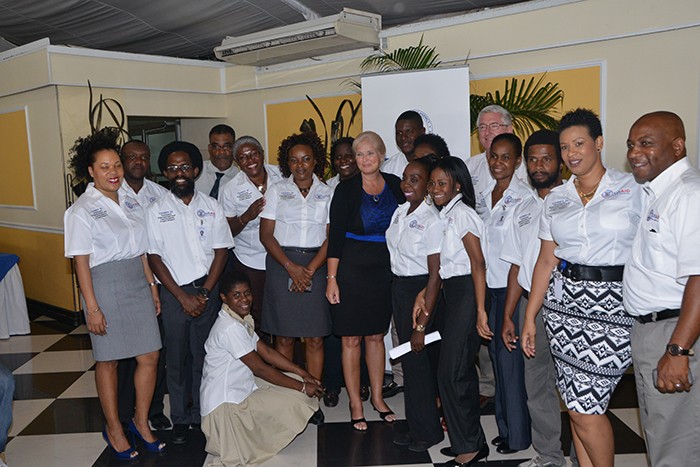
The Small Grants Program will provide direct funding support to community groups, faith-based organisations, non-governmental organisations (NGOs), and civil society organisations, to assist in strengthening local governance structures, and improving safety and security, particularly in volatile and vulnerable areas.
Provisions are also being earmarked to support the implementation of climate change adaptation activities, with focus on reducing the risk of disasters occurring, due to extreme weather patterns.
Three initial grants have been earmarked for allocation under the program. The first is $2.7 million to administer programs for “at risk” young people. The other two total just over $17.9 million to undertake youth and sports, skills trade, and vocational training programs.
While focus will be placed on providing support to the 25 communities where COMET II is being implemented, the small grants program will also be open for wider stakeholder participation, input, and benefit.
COMET II is $1.4 billion (US$13 million) community intervention initiative which USAID is implementing in the 25 communities across five parishes over the next five years, in partnership with the Government of Jamaica.
It is a continuation of work carried out under the program’s initial phase, between 2006 and 2013, in the 25 communities. These are among 100 communities targeted by the Planning Institute of Jamaica (PIOJ) for social interventions, under its Community Renewal Programme (CRP).
COMET’s overall aim supports the Government’s objectives and key aspects of the country’s Vision 2030 Jamaica National Development Plan, which seeks to position the island to achieve developed country status within 16 years and, in the process, making it the place of choice to live, work, raise families, and do business.
The COMET II Small Grants Program was formally launched by USAID Mission Director in Jamaica, Denise Herbol, during a ceremony. The occasion was also used to stage a climate change sensitisation session for participants attending the event, most of whom were from COMET II beneficiary communities.
In her remarks, Ms. Herbol said these engagements were “all about working with our communities and helping people.”
She noted that the extent of the USAID’s activities in Jamaica, over a number of years, has seen the agency establish a track record for promoting community safety and security; widening access to quality basic education; and increasing the resilience of targeted sectors, to climate change.
The Mission Director assured that under the USAID’s latest initiatives, “our emphasis remains an integrated approach to creating opportunities for secure livelihoods through a more cohesive, just, and healthy environment.”
In his remarks, Programme Director for the Planning Institute of Jamaica’s Community Renewal Programme (CRP), Charles Clayton, highlighted the importance of the COMET programme, particularly in complementing and assisting to advance work carried out under the CRP.
“The Community Renewal Programme is built on…partnerships…people working together in a coordinated way to bring about transformation in the (targeted) communities,” he stated.
Mr. Clayton pointed out that the COMET II programme focuses on such as security and safety, economic transformation, and the environment and climate change, offering, “(the) bridge that we all need…to re-unite our communities…and… make the changes that we need to see in our communities, to make a better Jamaica”.
Director of Governance at the Social Development Commission (SDC), Sherine Francis, said the COMET II grant programme and climate change sensitisation “signifies another important event towards advancing community development and building resilient communities.”







Comment
Make a general inquiry or suggest an improvement.